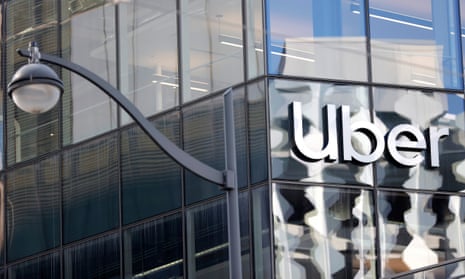“There has been no shortage of reporting on Uber’s mistakes prior to 2017. Thousands of stories have been published, multiple books have been written – there’s even been a TV series. Five years ago, those mistakes culminated in one of the most infamous reckonings in the history of corporate America. That reckoning led to an enormous amount of public scrutiny, a number of high-profile lawsuits, multiple government investigations, and the termination of several senior executives.
Q&AWhat are the Uber files?
Show
The Uber files is a global investigation based on a trove of 124,000 documents that were leaked to the Guardian by Mark MacGann, Uber's former chief lobbyist in Europe, the Middle East and Africa. The data consist of emails, iMessages and WhatsApp exchanges between the Silicon Valley giant's most senior executives, as well as memos, presentations, notebooks, briefing papers and invoices.
The leaked records cover 40 countries and span 2013 to 2017, the period in which Uber was aggressively expanding across the world. They reveal how the company broke the law, duped police and regulators, exploited violence against drivers and secretly lobbied governments across the world.
To facilitate a global investigation in the public interest, the Guardian shared the data with 180 journalists in 29 countries via the International Consortium of Investigative Journalists (ICIJ). The investigation was managed and led by the Guardian with the ICIJ.
In a statement, Uber said: "We have not and will not make excuses for past behaviour that is clearly not in line with our present values. Instead, we ask the public to judge us by what we’ve done over the last five years and what we will do in the years to come."
“It’s also exactly why Uber hired a new CEO, Dara Khosrowshahi, who was tasked with transforming every aspect of how Uber operates. He was guided from the start by the recommendations of Eric Holder, a former US attorney general hired by the company to investigate and overhaul our business practices. Dara rewrote the company’s values, revamped the leadership team, made safety a top company priority, implemented best-in-class corporate governance, hired an independent board chair, and installed the rigorous controls and compliance necessary to operate as a public company. When we say Uber is a different company today, we mean it literally: 90% of current Uber employees joined after Dara became CEO.
“Uber is now one of the largest platforms for work in the world and an integral part of everyday life for over 100 million people. We’ve moved from an era of confrontation to one of collaboration, demonstrating a willingness to come to the table and find common ground with former opponents, including labour unions and taxi companies. We are now regulated in more than 10,000 cities around the world, working at all levels of government to improve the lives of those using our platform and the cities we serve.
“Among other things, we have invested heavily in safety, developing many of the technologies that are now industry standard and publishing a comprehensive report of the most serious safety incidents. As part of our commitment to become a zero-emission mobility platform by 2040, we’re investing $800m to help drivers switch to electric vehicles and reporting on our progress along the way. We maintain gender and racial pay equity and have tied our senior executives’ compensation to our diversity goals.
“We have not and will not make excuses for past behaviour that is clearly not in line with our present values. Instead, we ask the public to judge us by what we’ve done over the last five years and what we will do in the years to come.”
On Monday, after Uber’s former lobbyist Mark MacGann came forward to identify himself as the source of the Uber files leak, the company said: “We understand that Mark has personal regrets about his years of steadfast loyalty to our previous leadership, but he is in no position to speak credibly about Uber today.
“Mark had only praise for Uber when he left the company six years ago. In his 2016 departure email, he called Uber the ‘enterprise of this generation’ and described himself as ‘a strong believer in Uber’s mission’.
“Since then, however, Mark has been in litigation against the company in an attempt, among other things, to get paid a bonus he claimed to be owed for his work at Uber. That lawsuit recently ended with him being paid €550,000. It is noteworthy that Mark felt compelled to ‘blow the whistle’ only after his cheque cleared.”









